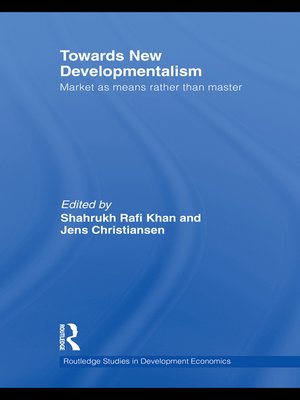Towards New Developmentalism
ebook ∣ Market as Means rather than Master · Routledge Studies in Development Economics
By Shahrukh Rafi Khan

Sign up to save your library
With an OverDrive account, you can save your favorite libraries for at-a-glance information about availability. Find out more about OverDrive accounts.
Find this title in Libby, the library reading app by OverDrive.



Search for a digital library with this title
Title found at these libraries:
| Library Name | Distance |
|---|---|
| Loading... |
The global financial and economic crisis starting in 2007 has provoked the exploration of alternatives to neo-liberalism. Although neo-liberalism has been critiqued from various perspectives, these critiques have not coalesced into a concrete alternative in development economics literature. The main objective of this book is to name and formulate this alternative, identify what is new about this viewpoint, and project it on to the academic landscape.
This book includes contributions from many prominent development economists who are unified by a form of "developmental pragmatism". Their concern is with the problems of development that preoccupied the pioneers of economic development in the mid-twentieth century, known as the developmentalists. Like the developmentalists, the contributors to Towards New Developmentalism are policy-oriented and supportive of institutional development and engagement with economic globalization. This collection has an over-arching concern with promoting social justice, and holds the general view of the market as the means to affecting an alternative program of development rather than as a master whose dictates are to be obeyed without question.
This important collection sets the agenda for new developmentalism, drawing on issues such as industrial policy, technology, competition, growth and poverty. In broad terms, the economic development debate is cast in terms of whether the market is the master, an ideological neo-liberal perspective, or the means to affect change as suggested by the pragmatic perspective that is being termed neo-developmentalism. This book will be valuable reading to postgraduates and researchers specialising in the area of development studies including within economics, international relations, political science and sociology.







